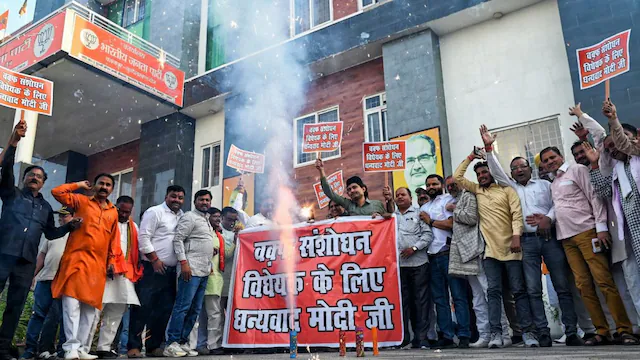Opinion | Waqf Law Overhaul: Balancing Faith, Governance And Justice

The overarching objective of these amendments appears to be to strike a better balance between protecting the sanctity of Waqf endowments, ensuring their proper management for the benefit of the community, and upholding the principles of fairness, transparency, and due process for all stakeholders
A significant debate is brewing across India following the recent passage of the ‘Unified Waqf Management, Empowerment, Efficiency, and Development (UMEED) Bill, 2025’ in the Lok Sabha. This legislation aims to overhaul the existing Waqf Act, 1995, a law that, along with its amendments, has been a subject of considerable discussion and, at times, controversy.
Understanding the historical trajectory of Waqf laws in India and the specific concerns surrounding the previous legislation is crucial to grasping the potential impact of this new bill.
The story of codified Waqf laws in India began in 1923 with the Mussalman Waqf Act. This initial step towards regulating religious endowments was followed by the more comprehensive Waqf Act, 1954, enacted in the early years of independent India. However, it was the subsequent amendments, particularly in 1995 and 2013, that significantly shaped the current landscape and fuelled the demand for the reforms proposed in the 2025 bill.
The Waqf Act, 1995, enacted by then Prime Minister P V Narasimha Rao-led Congress Government, marked a turning point by granting quasi-judicial powers to the State Waqf Boards. This empowerment aimed to streamline the process of identifying and managing Waqf properties, reducing the need for protracted civil court battles. Apparently, it seemed like an act of balancing the damage done to the Congress party’s vote bank by the demolition of the Babri Masjid, built over the Ram Janmabhoomi Andolan led by the BJP. However, this very provision became a lightning rod for criticism. Concerns arose that the broad powers vested in the Waqf Boards, in determining whether a property constituted a Waqf, lacked sufficient checks and balances and could be prone to misuse.
These concerns were further amplified by the Waqf (Amendment) Act, 2013, brought in by Sonia Gandhi through the PM Manmohan Singh-led Congress Government. This amendment was perceived by many as granting “draconian powers" to the Waqf Boards. Critics argued that the amended Act broadened the definition of Waqf to such an extent that it allowed for claims on properties with even a historical association with Muslims, regardless of formal Waqf dedication. This raised the spectre of retrospective claims and created significant uncertainty regarding property ownership across the country.
In Surat, Gujarat, the implications of these powers became starkly evident. The claim by the Waqf Board on the 500-year-old administrative building of the Surat Municipal Corporation under the provisions of the 2013 amendment served as a potent illustration of the perceived overreach. This incident ignited widespread debate and highlighted the potential for such claims to impact not only private individuals, but also public institutions and historically significant structures.
Adding to the discourse, the Sachar Committee Report (2006), while focused on the broader socio-economic status of Muslims in India, also touched upon the management of Waqf properties. The committee recommended measures such as the inclusion of non-Muslim experts in Waqf Boards, periodic audits of Waqf finances, and the digitisation of Waqf records to enhance transparency and efficiency. These recommendations underscored the need for improved governance within Waqf institutions.
A central criticism of the Waqf Act, 1995, as amended in 2013, revolved around the limited scope for judicial review of Waqf Board decisions. The quasi-judicial nature of these decisions, coupled with restrictions on challenging them in civil courts, was seen as undermining the principles of natural justice and accountability. Furthermore, the absence of a strict statute of limitations for claiming Waqf property created an environment where claims could be made on properties after decades, leading to insecurity for current owners and hindering development. The pity is that the attachment of any property to Waqf can only be challenged in a Waqf Tribunal, and that consists of Muslim members only.